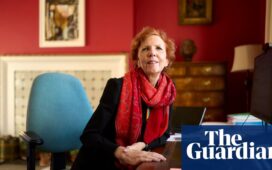My former colleague Malcolm Brynin, the influential sociologist and leading expert on labour market inequalities, has died aged 70 of cancer. He was the longest serving member of staff at the Institute for Social and Economic Research (ISER) at the University of Essex, joining the team in 1989 to work on the development of the world-leading British Household Panel Study.
Born in Tottenham, north London, Malcolm was the son of Rose and John Brynin, a station master. The family moved to Brighton, East Sussex, when he was a child, and he attended Brighton, Hove and Sussex grammar school.
While Malcolm was an executive officer in the Department of Trade and Industry he studied in the evenings for a sociology degree at Birkbeck, University of London, graduating in 1976. The following year he gained an MA in sociology at Reading, followed by a PhD at City University (1983). During this time he also worked as an interviewer with Social and Community Planning Research (now NatCen).
After completing his PhD, he became a research fellow in sociology at City University (1983-84), then a research fellow in the Centre for Television Research at Leeds University (1985-89). Seconded to the Cabinet Office for four months in 1995 to work on the Technology Foresight project, Malcolm gained the admiration of all who worked with him.
In 1976, he met Terri Lappin while chair of governors at a school where she was the headteacher. They married in Keighley, West Yorkshire, in 1989.
Malcolm’s publications included three books, many papers in mainstream journals on various forms of inequality and their effects, and two studies for the Equality and Human Rights Commission (2017).
He was extremely effective at communicating the results and relevance of his work to the wider policy community. Even after he became ill, he provided evidence to select committee inquiries, briefed the Cabinet Office ahead of a review of women and low pay, and gave a Westminster keynote speech on BAME inequalities in the workplace.
As well as a wide knowledge of classical music, opera and theatre (especially Shakespeare), Malcolm played the clarinet and travelled widely. He loved Italy, where his parents taught English for 15 years, as well as France and Germany. He also had a particular interest in medieval church architecture. Malcolm was charming company and will be remembered as a generous man with a wry sense of humour.
He is survived by Terri, his brothers, Peter, Bruce and Robert, and a sister, Susan.





